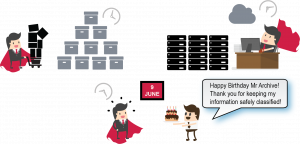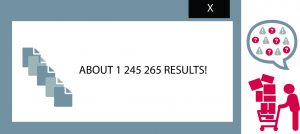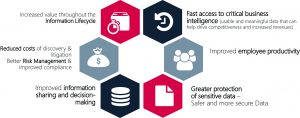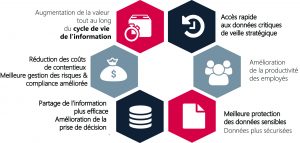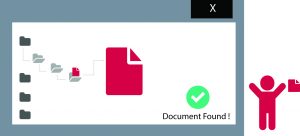Journée Internationale des Archives / International Archives Day
Aujourd’hui c’est la journée internationale des Archives !
Une occasion de remercier ceux qui facilitent nos recherches et échanges d’information….
An opportunity to thank the ones that ease our researches and information exchanges… Today is the International Archives Day!
Cette journée internationale place les archives au centre de l’attention en démontrant qu’une bonne organisation de la circulation des archives pendant leur cycle de vie est importante.
This international day puts the focus on the archives by highlighting that well-established organisation of the archive(s) flow during their whole lifecycle is important
QU’EST-CE QU’UNE ARCHIVE ? / WHAT ARE ARCHIVES?
Les archives sont des documents de différents types, de différents supports et de différentes périodes qui découlent de l’activité des organisations. Outil de bonne gestion et de gouvernance, elles sont conservées comme preuve ou témoignage du passé. Elles fournissent à la fois des preuves, des explications et des justifications aux actions et aux décisions passées et constituent des bases pour celles du futur.
L’optimisation de l’utilisation et la conservation de vos archives permettent d’améliorer votre efficacité et de rester « compliant » à tous les niveaux de votre activité quotidienne. Perçues comme un challenge pour les organisations, les archives représentent une plus-value.
Archives are documents of different types, age or support that are produced by an organization as part of an activity. Defined as being a management and governance tool for businesses, archives are witnesses of past events. They provide evidence, explanation and justification both for past actions and current decisions.
The optimization of the day to day use as well as the retention schedule of your archives improve your efficiency and enable to stay compliant. Mostly considered as a burden rather than an asset, archives represent an added value to your business.
LA LOI DU 25 JUILLET 2015/ LAW OF THE 25TH OF JULY 2015
Cette nouvelle loi reconnaît la valeur probante des copies électroniques de documents papier, dont elle autorise donc la destruction, et instaure le statut de PSDC (Prestataire de Services de Dématérialisation ou de Conservation). Les archives électroniques créées et conservées par une entreprise certifiée PSDC, bénéficient de la valeur légale d’original”.
This new law acknowledges the probative value of electronic copies of paper documents that therefore allows their destruction, and creates the PSDC status (Dematerialisation and Archiving Service Provider). The electronic archives, created and maintained by a certified company, benefit from the same legal value as the original document.
LES SOLUTIONS PAR LABGROUP / SOLUTIONS OFFERED BY LABGROUP
La théorie des trois âges des archives est une notion fondamentale de la gestion du cycle de vie des archives. Chaque archive depuis sa création jusqu’à la détermination de son sort final (destruction ou conservation) traverse ces périodes : les archives courantes, les archives intermédiaires et les archives définitives.
The Three Ages Theory is a fundamental notion enabling the management of the lifecycle of archives. Every archive from its creation to determination of its end (destruction or retention) goes through those periods: active, semi-active, inactive.
La gestion des archives courantes et intermédiaires :
- Optimisation de la circulation des archives,
- Organisation des procédures de recherche et de mise à disposition,
- Gestion des accès et de l’authenticité,
- Sécurisation de la destruction
La gestion des archives définitives :
- Décrire les archives et les fonds selon des normes archivistiques,
- Assurer la conservation à long terme pour les archives sur support physique et électronique,
- Gérer la confidentialité et la communicabilité.
Manage their active and intermediate archives:
- Optimization of the information’s circulation,
- Organization of the searching and display of procedures,
- Management of the access and authenticity,
- Secured destruction,
Manage definitive archives:
- To describe archives and funds according to archival standards,
- Assure long term preservation both paper and electronic,
- Transparency and confidentiality.
ARCHIVAGE PAPIER / DOCUMENT ARCHIVING
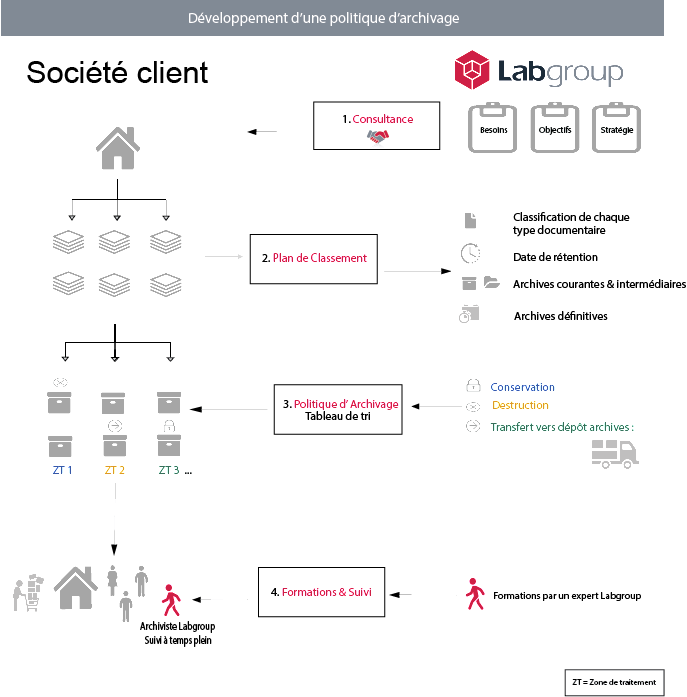
ARCHIVAGE ELECTRONIQUE / ELECTRONIC ARCHIVING

Copyright © 2016 Lab Luxembourg SA, All rights reserved.

